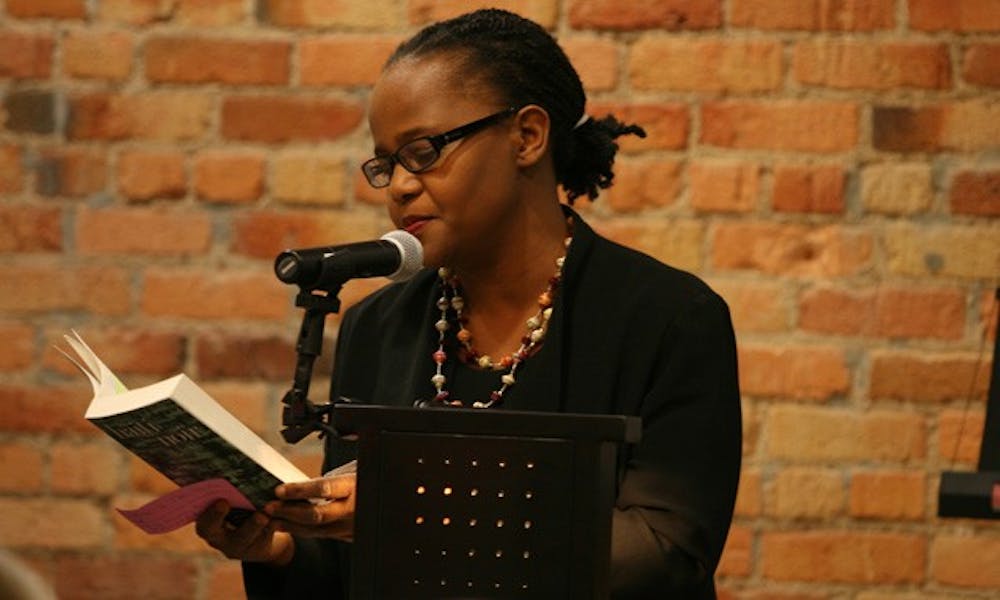Acclaimed Haitian-American author Edwidge Danticat spoke to an audience in Smith Warehouse about how she and other affected writers responded to last year’s Haitian earthquake Tuesday night.
The event was part of the Provost Lecture Series called “Natural Disasters and Human Responses.” Danticat began the presentation by recalling her experience on Jan. 12, 2010—the day of the earthquake—when she received a call with the news of the disaster.
“We had heard before that there could be an earthquake in Haiti, but it didn’t register.” Danticat said. “Little did I know standing in the supermarket with my two daughters that my cousin... was dying, his son was dying, countless people were dying.”
In her speech, Danticat described the destruction caused by the earthquake and its effects on her and the other members of her family. The author said that in her opinion the media’s focus on individual rescues minimized the perceived scale of the tragedy.
Haiti, which has long been an island with a strong literary community, has experienced a stylistic shift as a result of the earthquake, Danticat explained.
Throughout the event, Danticat read her own writing and that of other writers responding to the disaster from her books “Brother, I’m Dying” and “Create Dangerously: The Immigrant Artist at Work.”
“There was an outpouring of testimony,” she said. “Writers who were mostly fiction writers before were turning to [testimony about the earthquake].”
Danticat said even though many Haitians struggle daily to find basic material needs such as food, water and shelter, stories are still important to the morale of the people. To illustrate her point, she related her experience with the organization Li, Li, Li—which translates to Read, Read, Read! in Haitian Creole—an organization that reads stories to children displaced by the earthquake.
“Why tell stories?” Danticat asked. “In the camps you would grapple with that issue, but as soon as you saw the children and their eyes you knew more than any other moment why stories are important—because you saw the world around them disappear.”
Following her presentation, Dantitcat answered questions from the audience. Many audience members were already fans of the author’s writing and approached Danticat with copies of her books and requests for her signature.
“It’s nice to get her view of [the earthquake] as a Haitian,” said event attendee Pamela Bivens-Pippin. “It gives me a view that I wouldn’t have seen, especially on the national news, and she has a voice that is so unique.”
Professor J. Lorand Matory, director of the Center for African and African American Research, praised Danticat for her activism in Haiti as well as her writing.
“Ms. Danticat is a brilliant writer who’s been extraordinarily prolific across a range of genres,” Matory said. “Her writing is generally deeply sad and moving. She makes it impossible for us to turn away from suffering because she identifies it on an individual scale.”
Get The Chronicle straight to your inbox
Sign up for our weekly newsletter. Cancel at any time.

